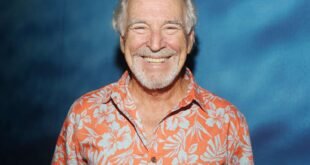Introduction to Tim Wakefield
Tim Wakefield is widely recognized as one of the most iconic figures in the history of baseball, particularly for his mastery of the knuckleball, a pitch that bewildered batters and catchers alike. Over a career spanning two decades, Wakefield not only exemplified longevity and resilience but also became a beloved figure in Major League Baseball (MLB), especially among Boston Red Sox fans.
Early Career and Transition to Pitching
Beginnings in Baseball
Born on August 2, 1966, in Melbourne, Florida, Tim Wakefield began his professional baseball career as a first baseman in the minor leagues. However, his journey took a dramatic turn when his batting failed to impress. Facing a possible end to his baseball aspirations, Wakefield made a pivotal transition to pitching, specifically focusing on the knuckleball—an unconventional choice that would define his career.
Mastering the Knuckleball
The knuckleball is a slow, unpredictable pitch that is difficult to control and even harder to hit. Wakefield honed this craft under the guidance of legendary knuckleball pitchers and coaches. His dedication to perfecting the pitch paid off, and he was soon called up to the major leagues.
Major League Success
Joining the Pittsburgh Pirates
Tim Wakefield’s MLB debut came with the Pittsburgh Pirates in 1992. His rookie season was remarkable; he helped lead the Pirates to the playoffs with his impressive performances. Wakefield’s ability to use the knuckleball effectively made him a unique and valuable player on the pitching roster.
A Red Sox Icon
In 1995, Wakefield joined the Boston Red Sox, where he would spend the remainder of his career. His time with the Red Sox solidified his status as a fan favorite and a key player. Wakefield’s contributions were crucial in the team’s successes, including their historic 2004 World Series win, breaking an 86-year championship drought.
Challenges and Resilience
The Unpredictability of the Knuckleball
While the knuckleball was Wakefield’s greatest asset, it also brought challenges. The pitch’s unpredictability could sometimes lead to high numbers of walks and home runs. Despite these challenges, Wakefield’s mental toughness and ability to adjust kept him in the game for many years.
Overcoming Slumps and Injuries
Throughout his career, Wakefield experienced various slumps and injuries that tested his resolve and dedication to the sport. His ability to overcome these obstacles speaks volumes about his character and resilience, traits that endeared him even more to his teammates and fans.
Later Career and Retirement
Milestones and Achievements
Over his career, Tim Wakefield amassed over 200 wins, a testament to his skill and longevity in the league. His achievements include being named an All-Star and winning the Roberto Clemente Award, which is given to players who best represent the game through sportsmanship, community involvement, and positive contributions both on and off the field.
Retirement and Legacy
Tim Wakefield retired from professional baseball in 2012. His legacy, particularly with the Red Sox, is marked by his impact both on and off the field. He remains actively involved in various charitable efforts, further solidifying his status as a respected and beloved figure in the sport.
Conclusion: The Enduring Legacy of a Knuckleball Legend
Tim Wakefield’s career is a compelling story of adaptation, perseverance, and success. His mastery of the knuckleball not only defined his career but also left a lasting impact on baseball. Wakefield’s journey from a struggling minor league first baseman to a major league pitching legend is an inspiration, highlighting the power of resilience and the importance of finding one’s niche. As he continues to contribute to the community and the sport, his legacy as one of baseball’s most cherished figures endures.
 Inspirescroll
Inspirescroll




